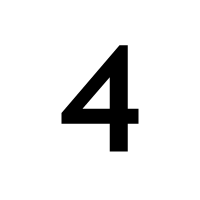- Afghanistan
- Åland Islands
- Albania
- Algeria
- American Samoa
- Andorra
- Angola
- Anguilla
- Antarctica
- Antigua and Barbuda
- Argentina
- Armenia
- Aruba
- Australia
- Austria
- Azerbaijan
- Bahamas
- Bahrain
- Bangladesh
- Barbados
- Belarus
- Belgium
- Belize
- Benin
- Bermuda
- Bhutan
- Bolivia
- Bonaire, Sint Eustatius, and Saba
- Bosnia and Herzegovina
- Botswana
- Bouvet Island
- Brazil
- British Indian Ocean Territory
- British Virgin Islands
- Brunei
- Bulgaria
- Burkina Faso
- Burundi
- Cambodia
- Cameroon
- Canada
- Cape Verde
- Cayman Islands
- Central African Republic
- Chad
- Chile
- China
- Christmas Island
- Cocos [Keeling] Islands
- Colombia
- Comoros
- Cook Islands
- Costa Rica
- Croatia
- Cuba
- Curaçao
- Cyprus
- Czech Republic
- Congo - Kinshasa
- Denmark
- Djibouti
- Dominica
- Dominican Republic
- Timor-Leste
- Ecuador
- Egypt
- El Salvador
- Equatorial Guinea
- Eritrea
- Estonia
- Ethiopia
- Falkland Islands
- Faroe Islands
- Fiji
- Finland
- France
- French Guiana
- French Polynesia
- French Southern Territories
- Gabon
- Gambia
- Georgia
- Germany
- Ghana
- Gibraltar
- Greece
- Greenland
- Grenada
- Guadeloupe
- Guam
- Guatemala
- Guernsey
- Guinea
- Guinea-Bissau
- Guyana
- Haiti
- Heard Island and McDonald Islands
- Honduras
- Hong Kong SAR China
- Hungary
- Iceland
- India
- Indonesia
- Iran
- Iraq
- Ireland
- Isle of Man
- Israel
- Italy
- Côte d’Ivoire
- Jamaica
- Japan
- Jersey
- Jordan
- Kazakhstan
- Kenya
- Kiribati
- Kosovo
- Kuwait
- Kyrgyzstan
- Laos
- Latvia
- Lebanon
- Lesotho
- Liberia
- Libya
- Liechtenstein
- Lithuania
- Luxembourg
- Macau SAR China
- Macedonia
- Madagascar
- Malawi
- Malaysia
- Maldives
- Mali
- Malta
- Marshall Islands
- Martinique
- Mauritania
- Mauritius
- Mayotte
- Mexico
- Micronesia
- Moldova
- Monaco
- Mongolia
- Montenegro
- Montserrat
- Morocco
- Mozambique
- Myanmar [Burma]
- Namibia
- Nauru
- Nepal
- Netherlands
- Netherlands Antilles
- New Caledonia
- New Zealand
- Nicaragua
- Niger
- Nigeria
- Niue
- Norfolk Island
- North Korea
- Northern Mariana Islands
- Norway
- Oman
- Pakistan
- Palau
- Palestinian Territories
- Panama
- Papua New Guinea
- Paraguay
- Peru
- Philippines
- Pitcairn Islands
- Poland
- Portugal
- Puerto Rico
- Qatar
- Congo - Brazzaville
- Réunion
- Romania
- Russia
- Rwanda
- Saint Barthélemy
- Saint Helena
- Saint Kitts and Nevis
- Saint Lucia
- Saint Martin
- Saint Pierre and Miquelon
- Saint Vincent and the Grenadines
- Samoa
- San Marino
- São Tomé and Príncipe
- Saudi Arabia
- Senegal
- Serbia
- Serbia and Montenegro
- Seychelles
- Sierra Leone
- Singapore
- Sint Maarten
- Slovakia
- Slovenia
- Solomon Islands
- Somalia
- South Africa
- South Georgia and the South Sandwich Islands
- South Korea
- South Sudan
- Spain
- Sri Lanka
- Sudan
- Suriname
- Svalbard and Jan Mayen
- Swaziland
- Sweden
- Switzerland
- Syria
- Taiwan
- Tajikistan
- Tanzania
- Thailand
- Togo
- Tokelau
- Tonga
- Trinidad and Tobago
- Tunisia
- Turkey
- Turkmenistan
- Turks and Caicos Islands
- Tuvalu
- U.S. Virgin Islands
- Uganda
- Ukraine
- United Arab Emirates
- United Kingdom
- United States
- U.S. Minor Outlying Islands
- Uruguay
- Uzbekistan
- Vanuatu
- Vatican City
- Venezuela
- Vietnam
- Wallis and Futuna
- Western Sahara
- Yemen
- Zambia
- Zimbabwe
What is an Interview with a Group? +7 Ways to Do Well on Them

What is an Interview with a Group? +7 Ways to Do Well on Them
You're waiting in a lobby to be called for your job interview. There are four other people waiting, but you don't notice them because you're practising your answers to the interview questions in your head. Then, a recruiter calls out your name and the names of the other four people in the lobby. He or she then tells you all to go to a large conference room. You thought you would have a one-on-one interview, but it turns out you will have a group interview.
This kind of surprise doesn't happen very often, but thanks to social media and websites like Glassdoor, it's happening less and less. This post will tell you what to expect in a group interview and how they are run.
There are 2 Kinds Of Group Interviews
The type of group interview you go to will determine what you've done before and what you'll need to do. Will you be talking to more than one person from the same company, or will there be more than one person applying for the same job? Read on to find out how group interviews work and what the two types of group interviews are.
Interviews with a group of people and group activities
- Typically, a single interviewer is doing many rounds of inquiry. What you'll be doing is answering the same question, and your aim is to make yourself stand out from the rest of the participants. With more than 10 candidates, it's not always possible to do a group interview this manner due of time constraints. When it comes to group interviews, you need to strike a balance between answering all of the questions you can and without monopolising the interviewer's attention.
- It's not uncommon for group interviews to include an activity or assignment that requires you to work together with other candidates to accomplish a common goal. A presentation of the company's products is common in sales professions, and it is displayed to the group as a whole, whereas programming jobs may involve a debugging work or short coding project.
On the Panel:
, you'll have to answer questions from many interviewers, including HR, your possible boss, and someone in a comparable position. A panel interview is more like an inquisition because of all the follow-up questions you'll get than a traditional interview.
Why Are Group Interviews So Popular?
- Front-line occupations, such as retail, customer service, and food service, frequently employ group interviews to assess a candidate's ability to maintain composure under pressure, think quickly on their feet, and do all of this while smiling.
- Group interviews aren't only for the above-mentioned positions, as more and more firms are embracing this setup since it's more cost-effective than individual interviews. In the end, interviewing ten persons at once is more cost-effective and time-saving than interviewing each one separately. As a result, employers may get a sense of how candidates engage with others in a team-based workplace by having them participate in a group discussion.
Techniques for Preparing for a Group Interview
You can't afford to lose focus, whether you're up against a single interviewer or a field of competitors. Everyone in the room will be watching you closely, even if you aren't the one making the announcements, so you must be vigilant at all times. To ensure that you're prepared for your next group interview, follow the steps outlined below.
1.Inquire about the Interviewer's Credentials
If you're taking part in a panel interview, knowing the interviewer's position is especially critical since it helps you better comprehend their perspective on the topics they ask during a group interview.
- The name of the interviewer.
- the company's position
- Breaking the ice will do the trick.
- For what reason are they looking for someone with a certain educational background?
- A good way to discover more about the panellists before your group interview, even if you didn't know who they were beforehand, is to pay attention to what they say when they introduce themselves.
2.Both the interviewer and the candidate should be greeted separately.
Meet the interviewer and the other participants by arriving early and making an introduction. Other applications are included. When you introduce yourself, you'll be able to use their name when you address them during the interview. In the eyes of the interviewer, calling a fellow candidate by name is a sign of your interpersonal prowess.
3.As long as you're kind, don't be afraid to stand by your beliefs.
Even in a small group, people have a strong inclination to follow the others. People avoid conflict by maintaining the status quo with friends and family and at work. To be a good leader, you must be willing to engage in debates and disagreements with your coworkers.
Don't be afraid to stand up for what you believe in during group interviews if you have a strong case. People prefer to agree with the most popular position, thus this is an excellent method to stand out in an otherwise quiet conversation. Make your counter-argument a question if you don't want to appear aggressive. In other words, rather than arguing that the group's agreement on a sales plan is incorrect, consider asking, "Has this sales method always worked for you previously?" It's far easier to get the group to consider their own assumptions before stating that they are incorrect.
4.Pay Attention Before You Speak
- A usual interview is one-on-one with the interviewer, however in group interviews, you have to wait for your time to be asked questions. Listen to what other candidates are saying while you're waiting for your chance to speak so you can craft a better answer when it's your turn.
- Even if you have something worthwhile to say, refrain from interrupting the interviewer or other applicants. This will make you appear pushy.
- Everyone should be a part of your answers.
- It won't help you stand out if you give the same answer as everyone else. It is possible to expand on the ideas of the other candidates if you pay attention to what they have to say. Tell them, "I think (Name) is correct, we've got to...," or "I think we should...," or anything along those lines.
- Even in a panel discussion, you may accomplish this by acknowledging the panelist's pause before responding to their question. Say something like: "(Name of Panelist), I understand your uncertainty regarding my (what they don't agree with or like in your previous answer) because the company (why you assume the panellist doesn't agree). Although (explain your counter-argument),"
- Any talks you had with other applicants, whether or not they were relevant to your answer, should be included if you came early. For example, if you're both web developers, you may have discussed the GDPR and how it impacts the websites you construct or maintain. GDPR is an excellent topic to bring up during an interview if the interviewer asks about your recent or tough projects.
5.Every now and again, answer first.
Make an impression by providing the best answer or by being the first to express your opinion. The greatest approach to stand out in a group is to answer the question first, as you can't promise that you'll always have the best response. You should, of course, only do this once in a while so that it doesn't appear as if you're excluding other candidates.
6. Have Self-Assured Body Language and Vocalization
Keep your chin up, relax your back, and smile when you answer questions in a group interview. You don't want to offer other candidates an opportunity to interrupt you by letting your voice dwindle in the middle of an answer.
7.Group Interview Questions That Often Come Up
Group interviews are identical to one-on-one interviews; the only difference is that you won't get clarification questions regarding your resume material unless you're in a panel set-up. The following are some of the questions you might anticipate to hear during a group interview:
Is this how you'd be described by your coworkers?
Think of the words your coworkers might use to characterise your attitude at work, and then use examples from your own experiences to back up those words. Because I have no issue working with a variety of people, my coworkers would characterise me as flexible," you may utilise this example. Everybody seems to get along with me."
What Drives You in Your Work?
- Wall, Einhorn and Chernitzer's Talent Acquisition and Development Manager Sarah Taylor says this is a common group interview question. "The best way to answer this question is to be honest," she continues. It's fantastic if you thrive on a sense of accomplishment. Own your money if you're driven by it."
- The purpose of this question is for her to get to know you on a personal level, so there's no point in lying about what drives you to succeed. The interviewer will be suspicious of you if you provide a corny or phoney answer anyhow, so don't do it.
What Motivated Your Job Search? Why This Business?
Make clear why you applied for the position. Try not to focus your responses on the income or perks they provide though because that can make the interviewer believe that you’ll depart once you get a better offer. Discuss the purpose, products, or industry of the firm instead and find a way to integrate it into your own personal interests.
When it comes to the mission of our company, how can your abilities and experiences help?
If you've done your homework on the firm, you should be able to answer this question with confidence.
- "The candidate's reaction is a good sign of their confidence in achieving the company's purpose and to some extent, how involved they would be in their positions once employed," says Robin Schwartz, MFG Jobs's General HR Manager. "
- Use your resume's accomplishments and talents as a guide while answering this question. It's time to re-evaluate and rework your CV if you can't clearly connect it to the company's history, goals, or vision. You may learn how to do that by reading this instructions.
Is This Company a Good Fit For Your Career Purposes?
- Don't just tell the interviewer where you want to be in a few years, because that's not what he or she is interested in. Instead of focusing on what you want to achieve in your career, think on what you want to learn and how you want to overcome obstacles in your job.
- It's imperative that you answer the interviewer's questions in a way that communicates your worth as a candidate, as they're solely concerned in what you can accomplish for the firm.
What Would You Do if You Discovered Another Employee Stealing from Your Company??
In Kohl's group interviews for retail positions, this question is frequently asked. When recruiters ask this question, it's not stated how they wish applicants to respond, but it is acceptable for applicants to declare that they will either confront the criminal or report them to management.
The following questions are frequently asked following a group activity or a simulation of the workplace.
A group activity or job simulation can also be used in an interview setting. Employers may observe how well you collaborate with others in a group setting when you have one of these sorts of interviews. After a group exercise or a work simulation, you may be asked these
Refrain from bragging about how much you've contributed to the project. It's important to remember that "team" is the keyword here, therefore centre your answer on the collective actions of your team. For example, if your group was able to communicate well and support each other despite a lack of resources, you might emphasise that.
After this, you'll be able to talk about what you brought to the table. Avoid making claims about your problem-solving abilities unless you can explain how you used them throughout the exercise. Otherwise, you run the risk of being called out by your teammates, which might be unpleasant.
As with the last question, you cannot exaggerate or lie in your replies in this scenario since your coworkers would be able to contradict your assertions. Don't stray from the facts. But you may focus on the good parts of what people may believe of you. Rather of admitting that you're the most opinionated member of the group, you may portray yourself as someone who enjoys spitting forth ideas to get the creative juices going.
Describe Your Approach to Overcoming Obstacles While Participating in the Group Activity.
When things weren't going well in your group, describe how you kept cool. When two members of your group couldn't agree on a course of action, what did you do? You could also talk about the time and money constraints you faced while completing your collaborative project.

 by Admin
by Admin


